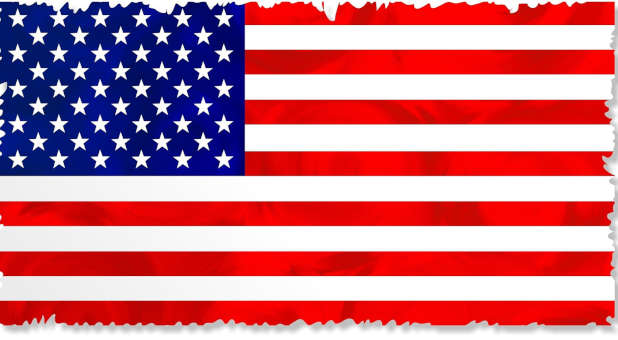Positive Proof That America Was Defined by 1726, Not 1619
Recently, Senate Minority Leader Mitch McConnell, R-Ky., sent a letter to Education Secretary Miguel Cardona, in which he expressed “grave concern” about the Biden administration’s plan to implement the New York Times’ 1619 Project into school curriculums across America.
There is reason for McConnell’s “grave concern,” for the 1619 Project paints America as inherently racist and corrupt and in need of fundamental transformation. According to those who propagate this myth, 1619, when the first African slaves were brought to these shores, defined America and is her true founding, not 1776.
This narrative is already being taught in many public schools and has even infiltrated Christian schools. A distraught parent recently contacted me to tell me of her daughter being taught, in her Christian school, that America’s founders were bad people and only wanted freedom for themselves.
The situation is critical, for as Alexander Solzhenitsyn said, “To destroy a people, you must first sever their roots.” If we do not preserve our roots, the America of Washington, Jefferson, Madison, Lincoln and King will be no more. What a tragedy that would be for America and for all mankind!
1726 Is the Key for Interpreting Our History
Slavery is a horrible blight on America’s past and could have defined the country had it not been for 1726. That year, a great, spiritual awakening began, which profoundly transformed colonial America. Racial and cultural barriers were breached and an abolition movement was ignited that eventually brought about the end of slavery on this continent.
Instead of being defined by 1619, America became defined by 1726 as a land of faith and freedom. The key to preserving our history and confronting the 1619 myth is to understand what happened, beginning in 1726. Interpreting America’s history in the light of 1726 changes everything.
5 Historical Facts From the 1726 Narrative That Completely Undermine the 1619 Myth About America
Fact No. 1: Slavery Was Not Unique to America — Slavery is a part of sinful humanity and has been practiced by many peoples and civilizations for thousands of years. Slavery was being practiced in Africa, Asia, the Middle East and many parts of the world when the first African slaves were brought to America in 1619.
This is why the late Dr. Walter E. Williams, who was professor of economics at George Mason University, and who happened to be Black, said that slavery in America was neither odd nor strange. He pointed out that at the beginning of the19th century, “An estimated three-quarters of all people alive were trapped in bondage against their will either in some form of slavery or serfdom.”
Williams pointed out that what was unique about slavery in America was both the brevity of its existence and the moral outrage that arose against it. The late historians, Elizabeth Fox-Genovese and Eugene Genovese, agreed, saying,
“Europeans did not outdo others in enslaving people or treating slaves viciously. They outdid others by creating a Christian civilization that eventually stirred moral condemnation of slavery and roused mass movements against it.”
Fact No. 2: Moral Outrage Arose Against Slavery in Colonial America — As documented in my book, 1726, a powerful anti-slavery movement emerged out of the great spiritual awakening that rocked colonial America in the 18th century. In this Great Awakening, racial and cultural barriers were breached as Blacks and whites worshipped together and shared the gospel with everyone, regardless of race or status in life.
Second-generation Awakening preachers then began to viciously attack the institution of slavery around 1750. Samuel Hopkins (1721–1803), for example, who had been personally tutored by Jonathan Edwards, was outraged by what he saw while pastoring in Newport, Rhode Island, an important hub in the transatlantic slave trade. He declared, “This whole country have their hands full of blood this day.”
In 1774, after the First Continental Congress had convened in Philadelphia, Hopkins sent a pamphlet to every member of the Congress, asking how they could complain about “enslavement” to England and overlook the “enslavement” of so many Blacks in the Colonies.
As “liberty” was becoming a watchword throughout the Colonies, the preachers of the Awakening began applying it to the enslaved in America. Like Hopkins, they pointed out the hypocrisy of demanding freedom from England while continuing to tolerate the institution of slavery in their midst. Baptist preacher John Allen thundered,
“Blush ye pretended votaries of freedom! ye trifling Patriots! who are making a vain parade of being advocates for the liberties of mankind, who are thus making a mockery of your profession by trampling on the sacred natural rights and privileges of Africans” (Hyatt, 1726:The Year that Defined America, 93-94).
The breaching of racial barriers in the Great Awakening provided the social context for George Washington to order his recruiting officers to accept free Blacks into the ranks of the Continental Army. As a result, by 1781, 1 in every 7 American soldiers was Black. Blacks and whites fought together for freedom from Great Britain.
Out of this Christian awakening, the moral and spiritual forces were unleashed that would eventually bring about the end of slavery on this continent. {eoa}
For more of this insightful article, visit biblicalawakeningblogspot.com.
This article is excerpted from Dr. Eddie Hyatt’s book, 1726: The Year that Defined America, available from Amazon and his website at www.eddiehyatt.com. He is also the creator of the “1727 Project,” which is a Powerpoint presentation documenting America’s birth out of a spiritual awakening that also brought about the end of slavery on the American continent.
Read articles like this one and other Spirit-led content in our new platform, CHARISMA PLUS.














































